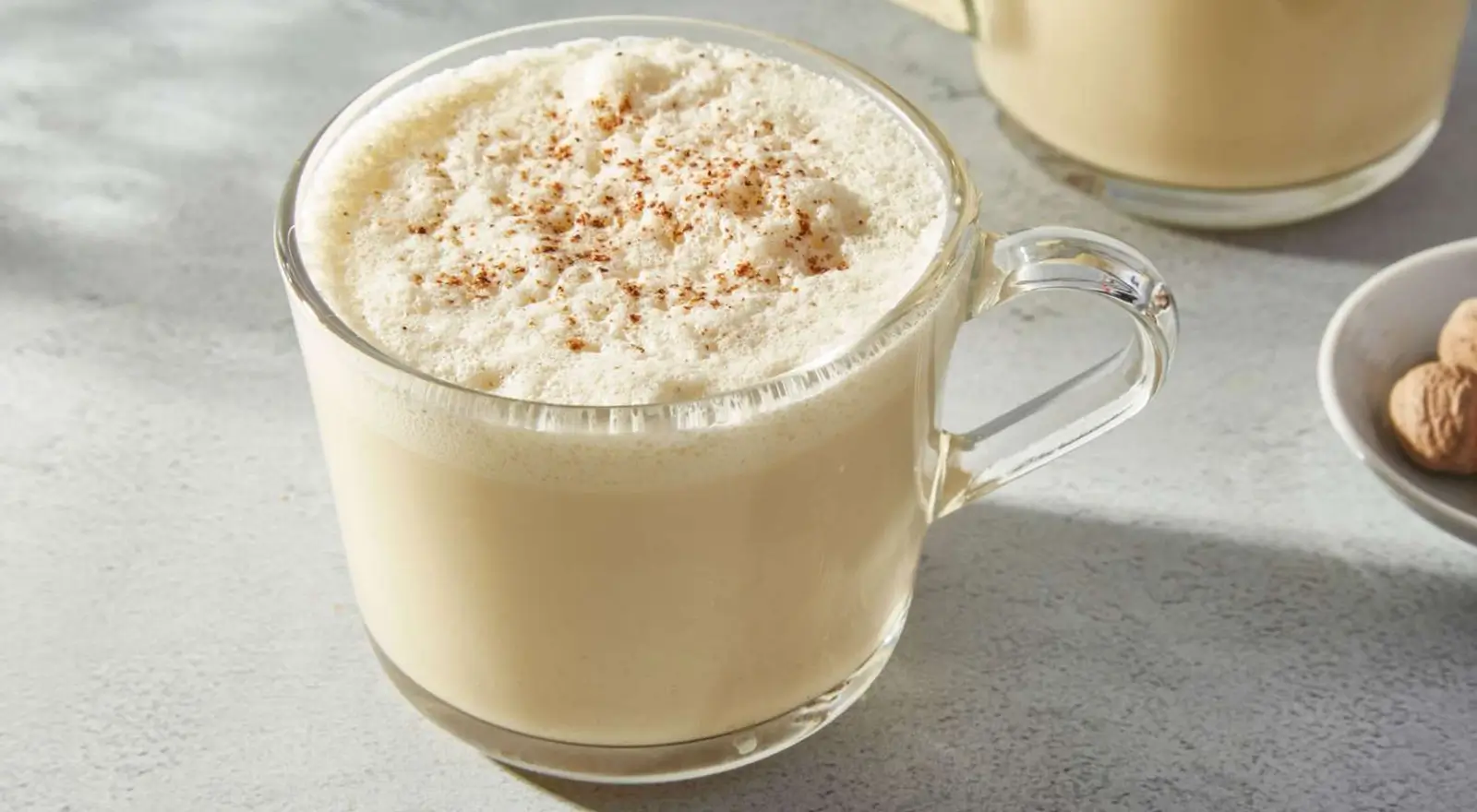Rich, creamy, and warmly spiced, eggnog — especially the boozy version — has been a beloved festive drink for centuries. The Smithsonian Magazine states that the original eggnog, known as “posset,” was a milky mixture crafted with alcohol, eggs, and figs by 13th-century British monks.
During that era, the drink’s ingredients were quite costly, making eggnog a symbol of wealth and good health. American settlers introduced the eggnog recipe in the 1700s, where the availability of cheaper rum, along with abundant milk and eggs, transformed it from an elite beverage into an accessible Yuletide toast (as noted by Time). However, today’s homemade eggnog differs significantly from the diluted, sugar-heavy, store-bought versions. Numerous brands and variations are available nationwide, most incorporating sugar or other sweeteners, such as high fructose corn syrup or carrot juice.
According to Food Network, a typical serving of eggnog contains approximately 170 calories and 8 grams of fat. While a standard drink serving is one cup, for eggnog, it’s actually just half a cup. Though not the healthiest drink, eggnog may offer some unexpected benefits.
Eggnog provides vitamins and minerals
Whether using heavy cream, low-fat, or non-dairy milk, the milky, eggy component of eggnog is rich in vitamins and minerals. Milk offers substantial amounts of calcium, magnesium, phosphorous, and vitamins A and D (per Women’s Health). Though a serving of eggnog is just half a cup, many people consume a full cup.
In 1 cup, most dairy-based eggnogs provide 48% of your daily value (DV) of B12, 37% of B2 (riboflavin), 25% of calcium, 22% of phosphorous, 17% of vitamin A, 15% of vitamin D, and 11% of magnesium and zinc. You’ll also receive smaller amounts of B6, iron, vitamins C, E, and K, potassium, thiamin, niacin, and folic acid (according to Nutrifox). On the other hand, non-dairy milk-based eggnogs may contain as few as 50 calories in half a cup, still providing a decent amount of calcium. If opting for vegan nog, you might miss some of the aforementioned vitamins and minerals. However, depending on the ingredients, you might gain manganese, copper, selenium, and pantothenic acid (per SparkRecipes).
Eggnog is packed with antioxidants
Nutmeg and cinnamon are the black or brown specks visible in eggnog. These spices, along with vanilla, contribute to eggnog’s warmly spiced flavor. According to Hyper Biotics, vanilla and cinnamon are rich in antioxidants. Ancient Egyptians deemed cinnamon so rare and valuable that it was considered a royal gift (as per Healthline).
Derived from the inner bark of Cinnamomum trees, the compound cinnamaldehyde imparts cinnamon’s distinctive aroma and spicy taste, while also offering most of its health benefits. Cinnamon provides antioxidants like polyphenols, which combat free radicals, as per Healthline.
While further research is necessary, a 2015 study in Food & Function supported cinnamon’s anti-inflammatory properties, concluding, “Cinnamon and its components may be useful in treating age-related inflammatory conditions.”
WebMD highlights that nutmeg’s antioxidants may aid in anti-aging and provide protection against cancer, heart disease, and liver disease. Additionally, vanilla’s antioxidant properties may shield cells from oxidative stress and potentially prevent liver damage (according to Healthline). Animal studies indicate that vanilla’s anti-inflammatory effects might protect against inflammation-induced cell damage and reduce skin inflammation from psoriasis. Together, cinnamon and vanilla may form a perfect anti-inflammatory combination.
There’s a ton of protein in eggnog
According to the United States Department of Agriculture (USDA), 1 cup of typical store-bought eggnog contains nearly 12 grams of protein. The Mayo Clinic suggests that 10-35% of your daily caloric intake should derive from protein, equating to 50-175 grams for a 2,000-calorie diet. On the lower end, that’s almost 25% of your daily protein requirement from just 1 cup of eggnog.
Protein is crucial for repairing old cells and generating new ones. It is especially vital for growing children, teens, and for fetal development and cellular protection in pregnant women (per MedlinePlus). However, serve the non-alcoholic version to these groups, monitor sugar levels, avoid undercooked or raw eggs, and keep eggnog away from children under 1 year old (as advised by Romper).
The body requires 20 different amino acids. Digestion breaks down protein-rich foods into essential amino acids. Eggnog’s base ingredients, milk and eggs, are rich sources of amino acids. They provide a comprehensive amino acid profile, including high levels of leucine, a crucial amino acid involved in insulin signaling, energy metabolism, and protein synthesis (according to SFGate).
How to make eggnog healthier
If you’re looking to make your holiday toast healthier, there are several ways to enhance the benefits of eggnog without compromising flavor or fun. Creating your own eggnog at home can be even more enjoyable than opening a store-bought carton. A vast array of recipes is available online to suit any dietary requirement or flavor preference.
Monk fruit can be used as a sugar substitute, as suggested by Women’s Health. Numerous non-dairy versions of eggnog are widely available if you avoid dairy. For a vegan option, use coconut milk to create a rich and creamy version ideal for crafting Coquito, the coconut-flavored Puerto Rican variation of eggnog (as mentioned by African Bites).
To boost protein content, consider making homemade eggnog and incorporating a vanilla protein shake into the traditional ingredients, adding up to 30 grams more protein per 11-ounce container (as per Premier Protein). However, not all protein shakes are equal. If you choose to use one, the Mayo Clinic advises selecting one with 200 or fewer calories, no trans-fat or partially hydrogenated oils, under 5 grams of sugar, and less than 2 grams of saturated fat.
To cut calories, make it kid-friendly, and eliminate any adverse alcohol effects, omit the alcohol. Avoid serving eggnog made with raw eggs to children, pregnant individuals, or those with weakened immune systems, as warned by Women’s Health. Choosing pasteurized eggs can lower the risk of salmonella.




